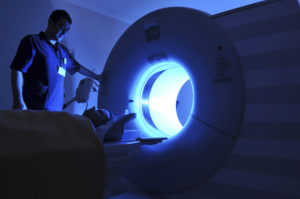Early Breast Cancers and Lumpectomies
 We’ve come a long way when it comes to breast cancer treatment. Today, a woman has options for treatment including surgery, radiation therapy, chemotherapy and hormonal therapy among others. Increasingly, the approach to treatment is individualized, based on the specific features of breast cancer present. As we have discussed previously, breast cancer is not just one disease, but a whole host of different types of malignancy, all with the commonality of being in the breast.
We’ve come a long way when it comes to breast cancer treatment. Today, a woman has options for treatment including surgery, radiation therapy, chemotherapy and hormonal therapy among others. Increasingly, the approach to treatment is individualized, based on the specific features of breast cancer present. As we have discussed previously, breast cancer is not just one disease, but a whole host of different types of malignancy, all with the commonality of being in the breast.
Gone are the days when a diagnosis of breast cancer was a death sentence. Gone too are the days when a breast cancer diagnosis automatically means removal of the breast. Breast conservation therapy is a type of breast cancer treatment that conserves the majority of the breast tissue and is offered to many women with breast cancer today, often in conjunction with radiation therapy. A lumpectomy where a small portion of the breast tissue containing the cancer is removed surgically may be recommended for treatment of early-stage invasive breast cancers.
In a recent study published in the journal JAMA Surgery, published studies evaluating treatment outcomes were reviewed and included over 130,000 cases of early-stage breast cancer. Patients with early-stage invasive ductal carcinoma who received breast conservation therapy fared better over a ten year timespan than did mastectomy patients, regardless of whether radiation therapy was used or not. While the margin of increased success was relatively small (less than 5%) it is a measurable and appreciable number. This study gives reassurance that in the proper setting, breast conservation therapy is a valid, proven method of treatment. Why the lumpectomy patients fared better than those who underwent mastectomy is a puzzle of the results which will warrant further study.
The best takeaway from this review study is that breast conservation therapy is a successful option for early-stage disease. This is great news for the many women who are diagnosed every year with early invasive breast cancer.
Originally published 1/27/14 on mammographykc.com.





